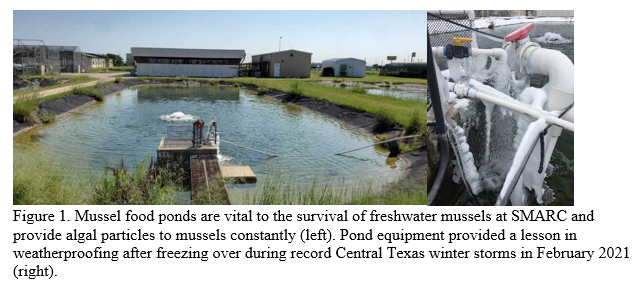FRESHWATER MUSSEL CONSERVATION AT THE SAN MARCOS AQUATIC RESOURCES CENTER IN TEXAS
Freshwater mussels are a highly imperiled group of organisms with over 70% of the nearly 300 species in the US and Canada in need of conservation. Texas is home to around 50 species of freshwater mussel, with roughly one third of those species considered either threatened or endangered. Freshwater mussels provide a breadth of ecological services to aquatic ecosystems, and filter water continuously. Elevated conservation statuses of these vital species have triggered a rise in conservation efforts nationwide by federal, state, municipal, and academic entities, with research, monitoring, and propagation at the forefront of these important conservation efforts. Efforts by the Mussel Program at the USFWS San Marcos Aquatic Resources Center (SMARC) center around research and propagation . Research onsite strives to inform conservation strategies by providing essential information regarding life histories, environmental tolerances, and toxicity testing of target and surrogate species. Propagating research animals on site reduces impacts to wild populations from specimen collection and allows biologists to streamline propagation systems and approaches . Each mussel propagation facility is unique in water supply, climate, and building type, so each season and new propagation system built provides a lesson for future improvements.
